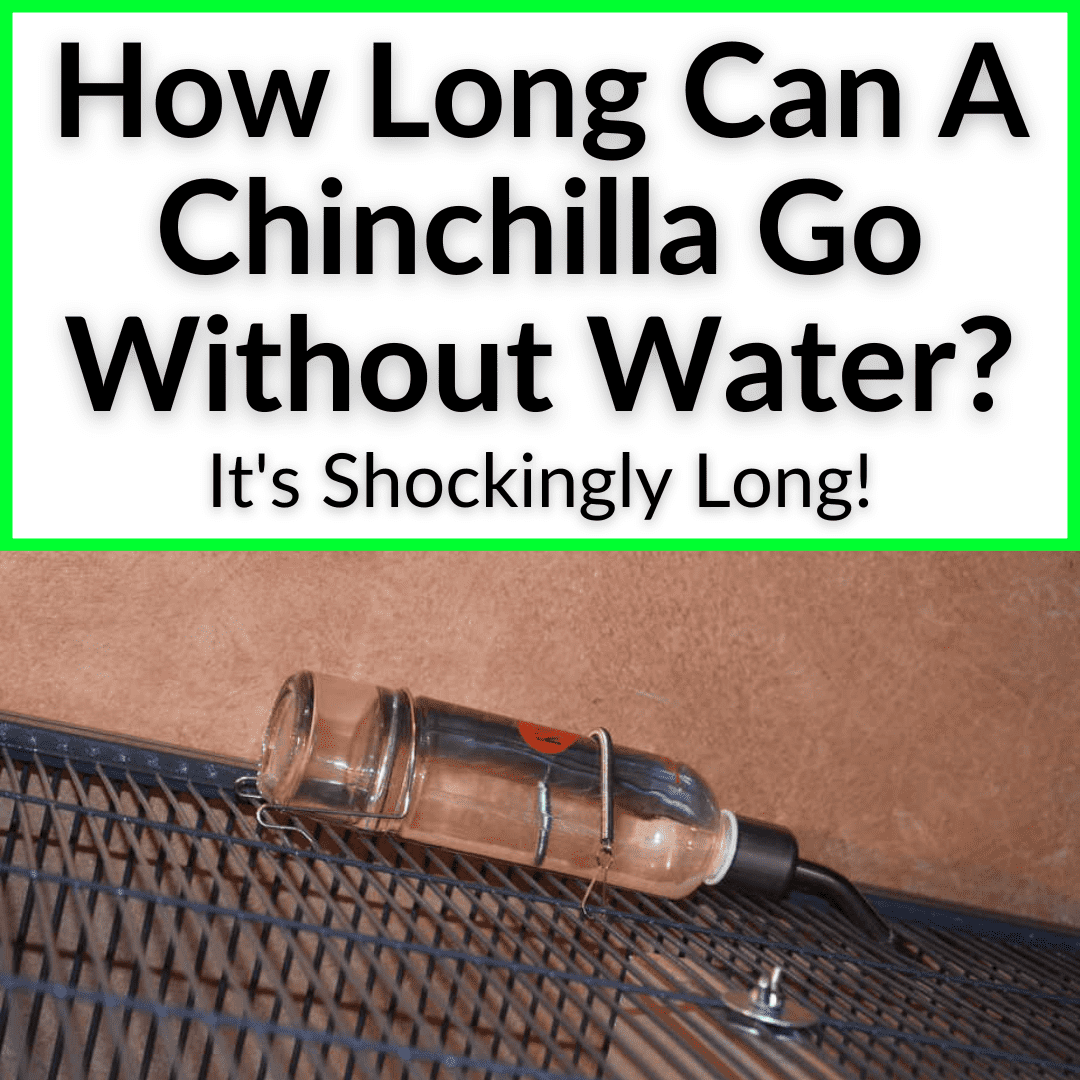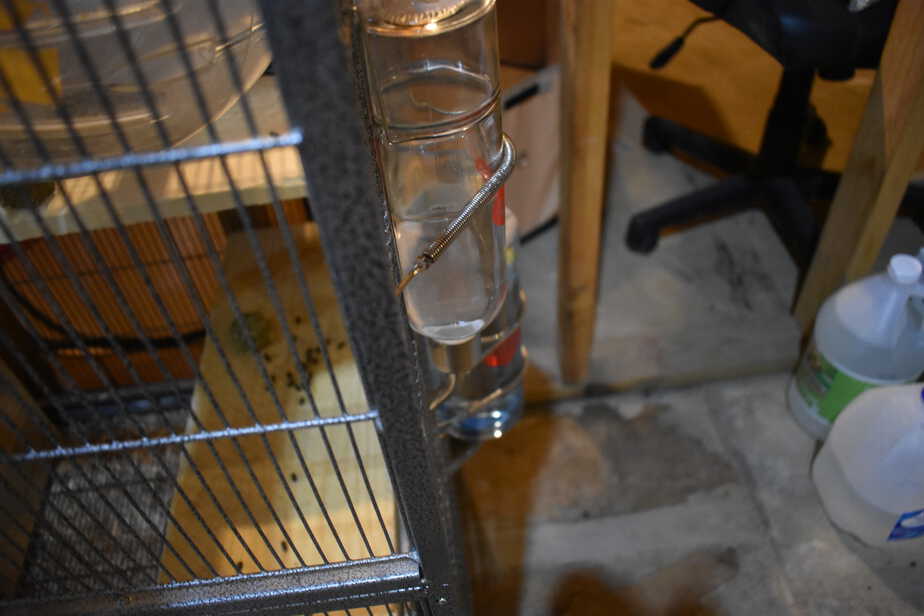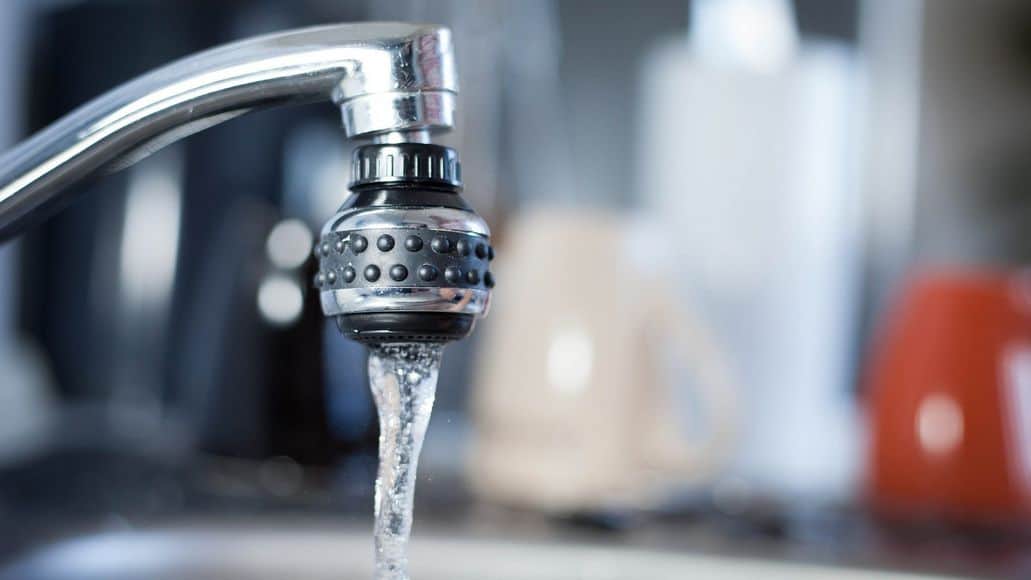
If so, you may know that I always have two water bottles attached to my chinchilla’s cage.
That must mean that my pet drinks a ton of water.
She doesn’t. Chinchillas drink surprisingly little. And they can go a long time without water.
But they can also easily become dehydrated.
That’s why I like to play it safe and always have a backup water bottle for my pet.
So how long can chinchillas go without water?
Keep reading to find out. We’ll cover everything you need to know about providing your chinchilla with sufficient water.
Contents
How Long Can A Chinchilla Go Without Water?
Chinchillas can go as long as two weeks without water. That is a surprising amount of time, but it makes sense when you consider their natural habitat.
The chinchilla is home to the Andes mountain range in south America. The area is extremely dry and gets very little rainfall. Water is hard to come by, so the chinchilla often has to go without for extended periods in the wild.
Chinchillas have adapted and do not need much water at all to survive. You’ll notice this with your pet. My chinchilla drinks very little water. But I still make sure she always has two full water bottles available in her cage (I like to have a backup, just in case).
How Much Water Does My Chinchilla Need?

The reason your chinchilla can go so long without water is that these rodents don’t actually need that much. A chinchilla will drink anything from two to four ounces of water a day. That’s it.
But you should make sure that your chinchilla always has fresh water on hand. Even though chinchillas don’t need a lot, they can still become dehydrated.
The amount of water that your chinchilla chooses to drink throughout the day may depend on environmental factors, like humidity levels and temperature. If both of these are high, your chinchilla will require more water.
Even if both are low and your pet needs minimal hydration, I always still recommend making sure that your chinchilla’s water bottle or bowl (learn why water bottles are much better here) is always full of fresh water and that it is regularly cleaned out to avoid bacteria growing and contaminating it.
Dehydration
As mentioned, chinchillas can still become dehydrated. You’re going to want to make sure you look after yours to avoid this. Dehydration can be extremely dangerous for chinchillas. It can lead to kidney failure, intestinal blockages or even be fatal.
Common dehydration symptoms to look out for include lethargy, lack of appetite, a dry mouth and sunken eyes. If you notice any of these symptoms then you should take your chinchilla to a vet immediately.
The most important thing you can do is to make sure your chinchilla’s water bottle is always topped up. As mentioned, I use two water bottles, just in case one becomes clogged.

You can also prevent dehydration by feeding your chinchilla fresh fruit or cucumbers as a treat. Cucumbers and fruits like berries have a high-water content and also make a tasty snack. They’re perfect for keeping your chinchilla hydrated, especially in the hot summer months.
But be careful not to give your pet too much fruit. A lot of it has a high sugar content, which can lead to obesity and other health issues. Our article on whether chinchillas can have cucumbers has more.
How Often Should I Change My Chinchilla’s Water?
Ideally, you should be changing your chinchilla’s water every day. It’s important to make sure your chinchilla has fresh water at all time. After all, who wants to drink stale water that’s been left out? I know I definitely wouldn’t!
Not changing your chinchilla’s water regularly could also result in bacteria starting to build up in the water bottle. This can make your poor pet sick if it drinks it, or lead to dehydration if it refuses to drink the spoiled water.
Is Tap Water Ok For Chinchillas?
You should avoid giving your chinchilla tap water, if possible. Tap water can contain chemicals and parasites and both of these could make your chinchilla very sick.

It would be best to give your chinchilla bottled water. It may be a more expensive alternative, but at least it prevents your chinchilla from becoming ill and potentially needing veterinary attention.
If bottled water is too expensive, you could also invest in a water filter. This is what I do. Not only is this better for my chinchilla, but it also means I get to drink purified, chemical-free water.
Why Shouldn’t Chinchillas Get Wet?
You should avoid bathing or getting your chinchilla wet due to the amount of fur it has. The chinchilla has some of the softest fur on the planet, with up to 70 hairs per follicle.
We humans only have one hair per follicle. With hair so much denser than ours, I’m sure you can imagine how long it can take for chinchilla fur to dry when it gets wet. It’s a long time! And having wet fur for so long can lead to a number of serious issues.
Wild chinchillas do their best to stay dry at all times, because getting wet in the wild can be disastrous. In captivity it is not as dangerous, since you can help dry a wet chinchilla and make sure it stays warm enough while wet.
Nevertheless, you should never bathe a chinchilla in water. They bathe in dust in the wild and you should provide your pet dust baths in captivity too.
How Long Can Chinchillas Go Without Water: Final Thoughts
Chinchillas can go up to 2 weeks without water, which is a shockingly long time. I mean, we humans die after a few days with no water. But that does not mean you can leave your pet without water in its cage.
You should always make clean, fresh filtered or bottled water available to your chinchilla. It needs to be able to get a drink whenever it wants one. That is why I use two bottles. That way there is a backup in case one gets clogged or otherwise becomes unusable.
Leave a Reply